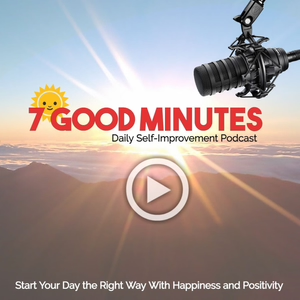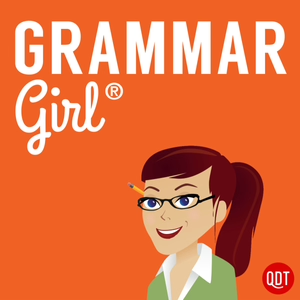
STEM Education
09/16/17 • 28 min
For those of you interested in more information about STEM, we've provided some helpful links with more information and resources that will give you a better understanding of STEM.
First, a basic descriptions of STEM:
S - Science
T - Technology
E - Engineering
M - Mathematics
There is also other acronyms, such as STREAM, STEAM, where R represents reading and A represents art. The idea behind all of these is that students should be learning in a 'real-world', connected way, where these subjects are integrated and students engage in problem-solving learning that requires the use of all these content areas. It's in integrative and applied approach, so that students are learning the skills they need to go into scientific, engineering, mathematics, and technology fields and be competent problem-solvers.
The purpose of STEM (and any other acronyms) is, according to the U.S. Department of education:
"In a world that’s becoming increasingly complex, where success is driven not only by what you know, but by what you can do with what you know, it’s more important than ever for our youth to be equipped with the knowledge and skills to solve tough problems, gather and evaluate evidence, and make sense of information. These are the types of skills that students learn by studying science, technology, engineering, and math—subjects collectively known as STEM." (from https://www.ed.gov/stem)
Below are some links to articles and information about STEM that we used to help start the conversation.
- U.S. Government - purpose and description of STEM https://www.ed.gov/stem There are many links within this page to more resources and supports for Teachers and schools
- From LiveScience - a nice description of STEM, some of the education policy behind the STEM initiative and what STEM looks like at the varying grade levels https://www.livescience.com/43296-what-is-stem-education.html
- From Teach.com, an overview of STEM and a listing of several STEM initiatives and links to resources https://teach.com/what/teachers-know/stem-education/
- The STEM Coalition - an advocacy group http://www.stemedcoalition.org/
- Information from NACME with an engineering focus on STEM http://www.nacme.org/information
- National Science Foundation - resources and information all related to STEM https://nsf.gov/nsb/sei/edTool
Hopefully these links will give you a good start towards both understanding STEM and finding supports for STEM teaching/learning.
Thanks for listening and be sure to tune in for future podcasts. Don't forget to send us feedback and suggestions for future topics. We are still just beginning this journey, still working on sound issues (hopefully by Ep 5 we will have this ironed out!!), and still exploring this podcast universe - bear with us!!
For those of you interested in more information about STEM, we've provided some helpful links with more information and resources that will give you a better understanding of STEM.
First, a basic descriptions of STEM:
S - Science
T - Technology
E - Engineering
M - Mathematics
There is also other acronyms, such as STREAM, STEAM, where R represents reading and A represents art. The idea behind all of these is that students should be learning in a 'real-world', connected way, where these subjects are integrated and students engage in problem-solving learning that requires the use of all these content areas. It's in integrative and applied approach, so that students are learning the skills they need to go into scientific, engineering, mathematics, and technology fields and be competent problem-solvers.
The purpose of STEM (and any other acronyms) is, according to the U.S. Department of education:
"In a world that’s becoming increasingly complex, where success is driven not only by what you know, but by what you can do with what you know, it’s more important than ever for our youth to be equipped with the knowledge and skills to solve tough problems, gather and evaluate evidence, and make sense of information. These are the types of skills that students learn by studying science, technology, engineering, and math—subjects collectively known as STEM." (from https://www.ed.gov/stem)
Below are some links to articles and information about STEM that we used to help start the conversation.
- U.S. Government - purpose and description of STEM https://www.ed.gov/stem There are many links within this page to more resources and supports for Teachers and schools
- From LiveScience - a nice description of STEM, some of the education policy behind the STEM initiative and what STEM looks like at the varying grade levels https://www.livescience.com/43296-what-is-stem-education.html
- From Teach.com, an overview of STEM and a listing of several STEM initiatives and links to resources https://teach.com/what/teachers-know/stem-education/
- The STEM Coalition - an advocacy group http://www.stemedcoalition.org/
- Information from NACME with an engineering focus on STEM http://www.nacme.org/information
- National Science Foundation - resources and information all related to STEM https://nsf.gov/nsb/sei/edTool
Hopefully these links will give you a good start towards both understanding STEM and finding supports for STEM teaching/learning.
Thanks for listening and be sure to tune in for future podcasts. Don't forget to send us feedback and suggestions for future topics. We are still just beginning this journey, still working on sound issues (hopefully by Ep 5 we will have this ironed out!!), and still exploring this podcast universe - bear with us!!
Previous Episode

Education Assessment - What & Why?
In this episode we talk about what is the purpose of assessment in education, what types of assessment are out there, and do assessments accomplish their 'purpose', whatever that might mean. Assessment is a lot more than a standardized test.
Episode 2: Assessment and The Cheesecake Factory by Tim Pope
Chez Assessment is one of the most popular restaurants in the K12 neighborhood. Although it claims to be a family-friendly restaurant, how much of the menu do you understand? There’s not even a kid’s menu. With all of the complaints, how does the place stay open?
- Just like fast-food joints, most people think schools eat there too much and it’s not good for you (if you believe the research, up to a third of a school’s time is spent there).
- Just like a hipster, gastropub joint, most people cannot understand the menu.
- Just like The Cheesecake Factory, the menu is so long, how is a school supposed to know what to order.
- Just like the seedy-looking greasy spoon down the road, most people want to avoid it because they heard others have gotten sick eating there.
- Some parents think it is so bad they keep their kids at home when they hear another trip to Chez Assessment is coming.
Toeing the line of stretching a metaphor too thin, assessment does have a lot in common with The Cheesecake Factory.
- All of the items on the restaurant menu were put there to meet a particular need or desire. But there are lots of different tastes and the Factory tries to meet them all.
- Quality food is difficult to make, yet a franchise restaurant such as The Cheesecake Factory has to scale their methods to hundreds of restaurants.
- If you want customers, the prices need to be affordable.
Just like the menu at Cheesecake Factory, the assessment industry struggles because there are too many goals being met, too large a desire to answer complex learning questions with a simple answer, and good assessment costs money most schools, districts, and states do not have.
- Schools want to use assessments for a myriad of questions. While these are all important questions, standardized assessments are better at some of these than others.
-
- What have students learned? Where might they be behind in their learning?
- Are teachers quality instructors?
- Will a student succeed in college?
- Which schools provide a better education?
- Are students prepared for the next unit in the course, the next course, grade level, college?
- These are all challenging, yet important questions. Yet many of us who care deeply about the questions do not have the time or expertise to understand the complex answers to these complex problems. The local realtor wants to be able to say “The schools here are the best in the region.” Administrators want to say “Our teachers improve student learning.” Parents want to know their children are learning what they need for success in college and career. These answers would be best in book form, not as a number from 1-100 or a grade from A-F.
- Answering these questions in a valid and reliable way is not cheap. “Bubble” tests would be replaced with collections of student work, open-ended tasks with multiple correct “answers”, and computer-adaptive testing. The entire menu of Chez Assessment wants to move in this direction but do districts and states (mostly states) want authentic assessment enough to pay substantially more for it.
I assert most people would say The Cheesecake Factory is a good, but not great restaurant. Some cheesecake lovers probably believe it’s the best place ever. Others probably find it to be generic and overwhelming with a plethora of better ideas for a restaurant. So it is with assessment. The current menu is the best attempt to answer good questions with answers in the format the community wants and at a price tag the community is willing to pay.
Next Episode

School Choice
School choice is a hot-button topic these days with the Trump Administration and the Secretary of Education, Betsy DeVos, being huge proponents of school choice.
This episode explores the different types of school choice, funding options behind school choice, and who decides who really controls the decision on what school your student can go to.
School choice is more than just picking a school and taking the public fund money and going to that school. Each state has different rules governing school choice, and there are different ways to fund school choice. Below are several links to relevant articles and resources that will provide you with more insight and information.
1) EdChoice - great resource that defines school choice, describes the different types of school choice, and related funding
2) NCSLvouchers - state-by-state comparison of school voucher law
3) NCSLschoolchoice - searchable by type of school choice and by state, showing all the different types of school choice options with description (interactive)
4) Brookings - a good article on how states could expand the private-school choice programs
5) Education Commission of the States - another good side-by-side comparison of the states and their school choice options. Great if you are curious about what the options are in your state
6) Center for Education Reform - nice concise article with definitions of the type of school choice and what they mean, some historical information and data on school choice.
7) Interesting editorial about students with disabilities laws and how school choice impacts students with disabilities.
(again - our sound issues are just about resolved, so hopefully this will be the last episode with any sound concerns!!)
If you like this episode you’ll love
Episode Comments
Generate a badge
Get a badge for your website that links back to this episode
<a href="https://goodpods.com/podcasts/180-days-education-194805/stem-education-18894372"> <img src="https://storage.googleapis.com/goodpods-images-bucket/badges/generic-badge-1.svg" alt="listen to stem education on goodpods" style="width: 225px" /> </a>
Copy




